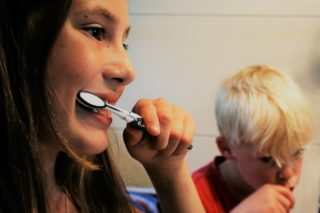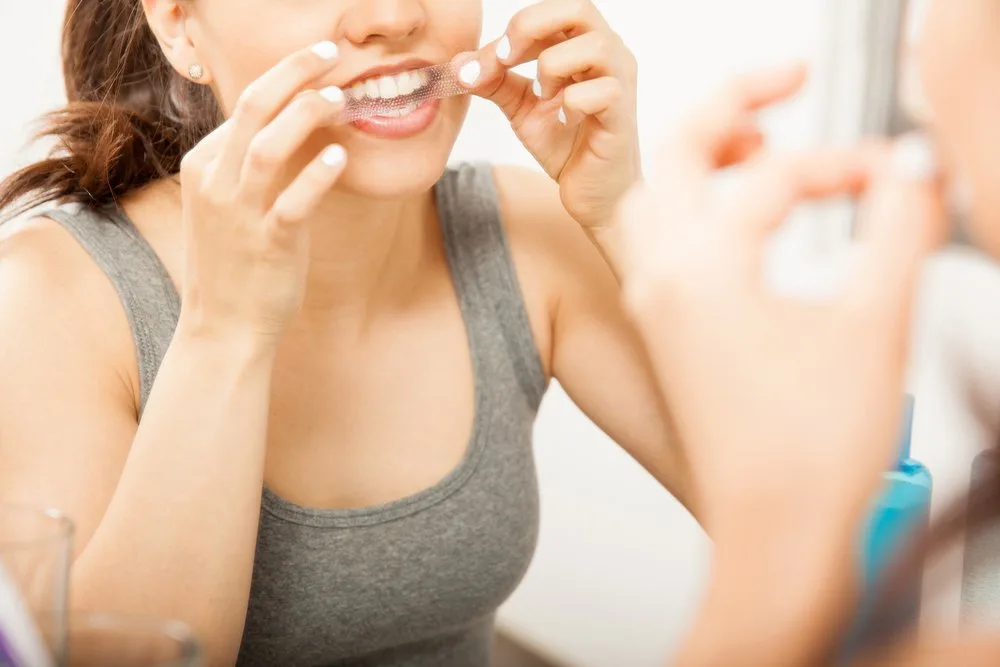Taking care of your teeth and gums may feel like a simple endeavor for a lot of people. You might think that as long as you brush your teeth twice a day, that’s everything covered. However, good oral hygiene is so much more than that. You may need to amend your oral cleaning routine depending on personal circumstances, such as diet or age, or you may need to pay attention to any other risk factors from onset diseases or problems.
This guide will discuss the overall importance of oral hygiene, as well as some top tips to keep your teeth and mouth as clean as can be.
Why is Oral Hygiene Important?
Good oral hygiene is important for many reasons. It’s important for preventing gum disease and other oral problems, for the good of your general health, but taking care of your oral hygiene is also important for a healthy lifestyle, as strong and healthy teeth are essential for proper eating practices, as well as healthy mouths being able to produce saliva to assist in breaking down acidic properties and food properly.
Good oral hygiene is also important for building your own confidence and peace of mind knowing that you are in good health. Nobody wants to worry about bad breath, and stained or missing teeth, especially not if these problems indicate more serious health concerns.

Jacob Lund/Shutterstock
Oral hygiene is therefore essential for good health and wellbeing all round. No matter your age, a focus on oral hygiene is always encouraged.
Signs That Your Oral Hygiene is Being Neglected
Unfortunately, oral hygiene can easily be neglected. Busy lifestyles and tiring routines may make it easy to skip brushing your teeth before bed, forget to floss, or even to forget to attend your regular checkup appointments.
People with clean, white teeth often think that they don’t have any problems and therefore put off a regular check-up or put too much reliance on their overall routine.
However, oral hygiene problems can quickly develop and are hard to get rid of. Unless you’re a trained dentist, you might not know what you’re looking for when inspecting your teeth, gums and mouth. Dentists can easily catch early signs of any issues like diseases, which might be missed by you.
Some signs to watch out for which may indicate your oral hygiene is being neglected include:
- Bleeding or swollen gums. Most easily noticed when looking for blood when you spit after brushing your teeth and if you notice tenderness when pressing your brush against your gums
- Receding gums, where the gums pull back from the teeth
- Tooth pain
- Issues with bad breath
- Staining or discoloration
- Sores in the mouth
- Tooth decay
- Tooth loss
 It’s important to watch out for these signs more and more as you get older, particularly over the age of 30 and towards your senior years.
It’s important to watch out for these signs more and more as you get older, particularly over the age of 30 and towards your senior years.
How Often Should You Have a Dental Checkup Appointment?
Regular dental checkups should be done on average around every 6 months. However, those with no official oral health problems may be able to go as far as every 12 months if an appointment every 6 months isn’t convenient. It’s important to follow your own dentist’s advice on when you are next due for an appointment, as every circumstance is different.
If you feel as though you are experiencing oral health or teeth problems between regular checkup appointments, it’s important to make separate appointments to address any new issues and keep on top of this.
You may need to have more regular dental checkups as you get older.
It’s important to note that regular dental checkups aren’t only about checking your teeth for problems, either. Regular appointments mean your teeth can be cleaned by a dental hygienist, a professional cleaning regime that cannot be done at home with a normal toothbrush.
If you struggle to keep track of dental appointments or easily forget, try to get a schedule in place and set reminders to help you remember. You will usually receive a reminder from your dentist when you are due, too.
How to Brush Your Teeth Properly
Firstly, an electric toothbrush is going to offer the best possible clean and do a more thorough job. However, not everyone can afford to invest in an electric toothbrush or buy the best model, so as long as you are brushing your teeth with a brush you can comfortably use for a thorough clean, that’s all that matters. 
Brushing should be done at least twice a day, ideally in the morning and in the evening before bed and you should aim to brush for at least 2 minutes for a full clean. Some electric toothbrushes have a built-in timer, otherwise, you can set your own timer on your device, check the clock or simply count in your head if that’s easiest for you.
You don’t need to overload your brush with toothpaste, as more toothpaste doesn’t equal a more thorough clean. A pea-sized amount will do.
When brushing, aim for a circular motion on your teeth, rather than side to side. Electric toothbrushes will brush this way automatically, but if you’re using a manual, be sure to brush in a circular motion. You should also aim your brush down towards the gums at a 45-degree angle, and brush carefully against your gums, too.
Be sure to get the back of your teeth, too.
When spitting, watch for any signs of blood after brushing, as this can be an indication of gum disease. Be sure to mention this to your dentist if you do spot blood.
Flossing Tips
A lot of people easily skip flossing or only floss a few times a week, but simply brushing your teeth for two minutes isn’t enough. Flossing is crucial as it cleans the areas between your teeth which your toothbrush cannot reach. This is also essential for gum health, as floss can reach up to your gums between teeth for a thorough clean. Flossing is an important hygiene tool to fight against gum diseases, too.
If you aren’t able to floss or would prefer to use an alternative, you can use an interdental brush, which is a small brush that pushes between the teeth rather than using strands of floss.
Caring for Braces
Your oral hygiene routine is going to need to be amended if you are wearing braces, and your dentist or orthodontist should show you how best to clean your teeth when you are fitted with braces. Because of the higher risk of food becoming stuck behind wires, it’s even more important to clean your teeth thoroughly and clean between each wire using an interdental brush.
 Your braces may also become compromised if you eat certain foods, such as hard foods that can break wires or brackets. It’s therefore important to amend your diet as necessary, too, to make sure that your braces can stay in place and do their job for that healthy smile.
Your braces may also become compromised if you eat certain foods, such as hard foods that can break wires or brackets. It’s therefore important to amend your diet as necessary, too, to make sure that your braces can stay in place and do their job for that healthy smile.
Dealing with a Fixed Retainer
Fixed retainers are used to keep your teeth aligned once braces have been removed. It’s important to adjust your oral hygiene routine as necessary to care for your teeth around a fitted retainer.
With a fitted retainer, you will not be able to use floss, as you cannot pull the strands between teeth, so you will need to use an interdental brush instead to slot between your teeth. Your dentist or orthodontist can best advise you on how to clean your teeth thoroughly whilst wearing a fixed retainer.
Furthermore, it’s important to be aware of any loose fittings with your retainer (or if it breaks) as any compromised retainer may mean that your teeth shift, which can cancel the hard work done by braces. Therefore inform your orthodontist or dentist as soon as possible if your retainer becomes loose to get it reattached.
Denture Care
If you wear a partial or full denture, then you will need to take care of your denture’s cleaning routine on top of your own oral hygiene routine. Always be sure to remove any dentures after eating to rinse and clean them, and use this opportunity to clean your mouth thoroughly while the dentures are removed. Soak and rinse your dentures as needed, in line with advice given to you by your healthcare professional.
Also, be sure to understand when it might be time to replace your dentures.
While dentures do require more focused hygiene practices, it’s worth it to ensure you have good oral health and can feel comfortable with a fixed smile and a solution for missing teeth.

digitalskillet/shutterstock
The Benefits of Mouthwash
Rinsing with mouthwash is a great way to top off your oral hygiene routine every day. Mouthwash helps to get rid of excess debris in the mouth and food which may have become trapped between teeth. Mouthwash is also great as it refreshes the entire mouth, including the tongue, and helps to improve breathe as well as eliminating bacteria build up.
You should aim to use mouthwash twice a day, at the same time as brushing, so in the morning and before bed. Use the instructions on your chosen mouthwash to use it in the correct way. Usually, this involves filling the cap into a line and swilling around your mouth for at least 30 seconds before spitting (do not swallow).
Some mouthwashes may also be tailored for specific issues or conditions, such as mouthwash for sensitive teeth or bleeding gums.
Food and Drinks to Avoid if Possible
The most problematic food and drinks are going to be those which are very acidic and which have staining properties. Acid can promote tooth decay, oral problems, and also enamel weakening. Other foods or drink can also make it more likely for your teeth to appear stained.
You should therefore try to limit or avoid altogether the following:
- Products high in sugar
- Citrus fruit juices
- Fizzy drinks and sweetened juices
- Coffee
- Red wine
- Curry sauce
- Soy sauce
Other Oral Hygiene Tips

alekso94/shutterstock
Here are a few closing tips for you, so you can always be sure that your oral hygiene routine is the healthiest it can be.
Wait at least 30 minutes after eating or drinking before brushing your teeth. This is important because it gives your saliva the chance to break down acidic properties and bacteria. If you brush too soon, you may risk brushing these damaging properties into your teeth.
Brush your teeth when you’re more awake. If you struggle to find the motivation to brush thoroughly when you’re ready for bed, then brush earlier in the evening instead. This will give you more time and patience to do a good job.
Always ask your dentist for tips. It doesn’t matter if it’s simple questions such as how to brush your teeth better, always be open to asking your dentist the questions that matter.
Hopefully, this guide will help you to maintain a healthy and happy mouth!





![women [longevity live]](https://longevitylive.com/wp-content/uploads/2020/01/photo-of-women-walking-down-the-street-1116984-100x100.jpg)









